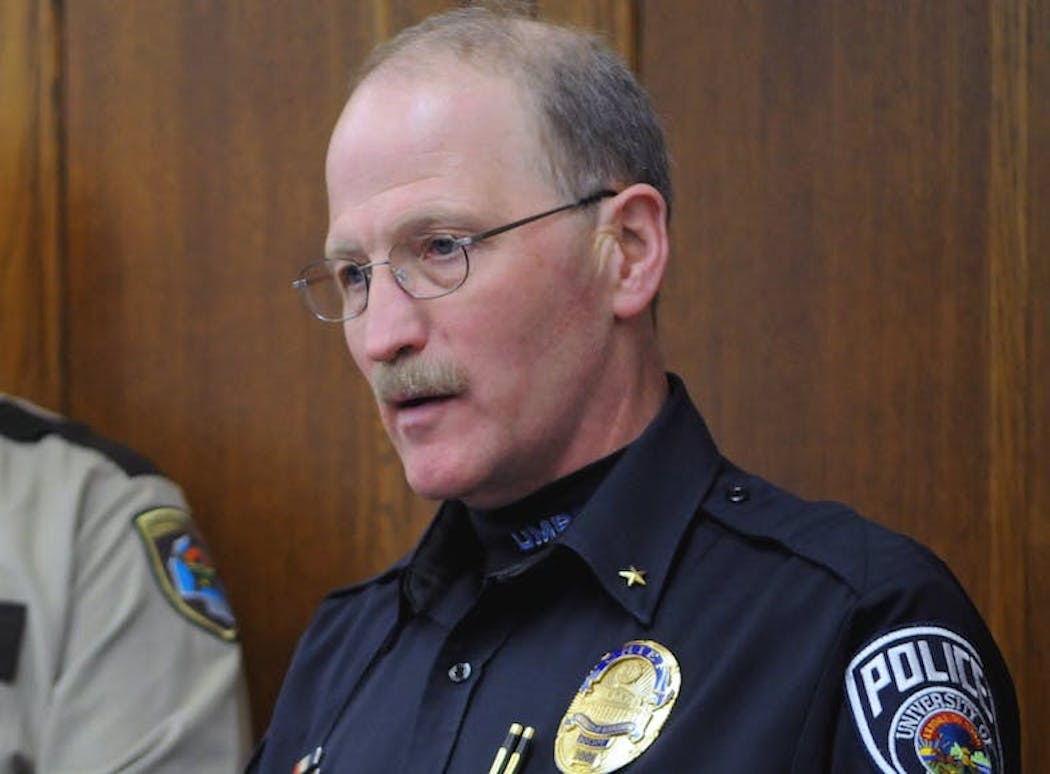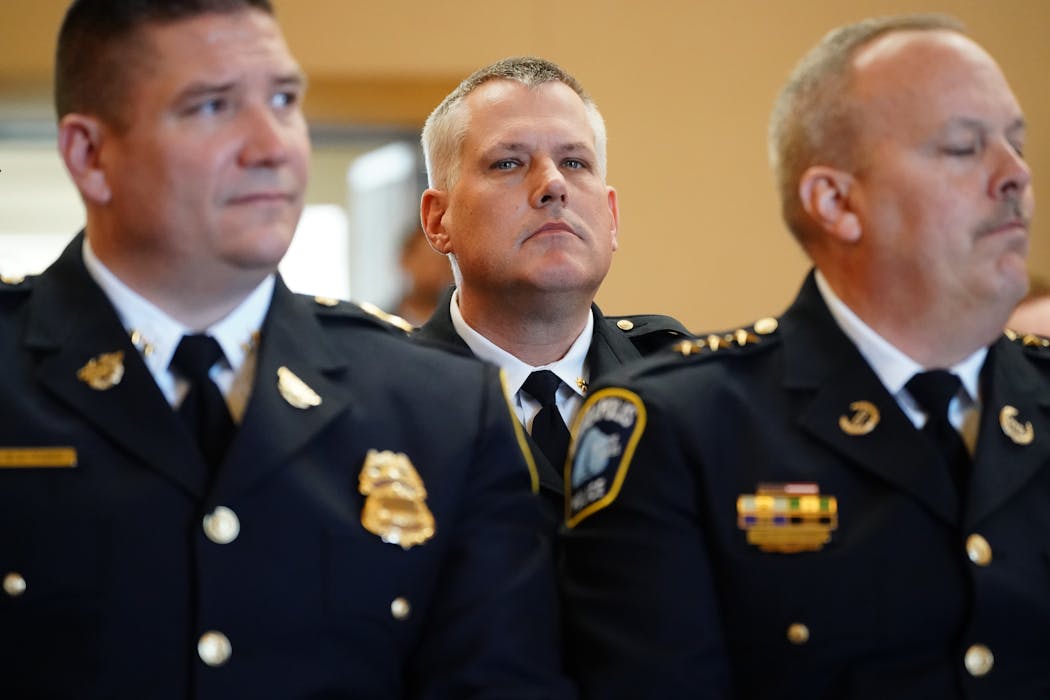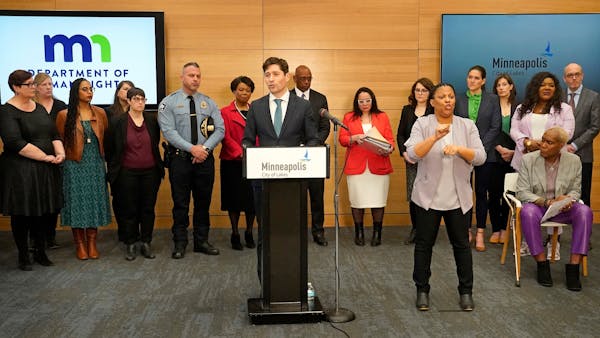Greg Hestness, a former Minneapolis deputy police chief, believes he would be a great addition to the city's newly created Community Commission on Police Oversight.
"I am probably more community than anyone they are going to name," said Hestness, who later served as the University of Minnesota's police chief and is now retired. "My family has been here since 1878. I graduated from Minneapolis Central High School. We live in the city. I have family all over the city."
Hestness is one of about a dozen individuals with current or former ties to police or law enforcement who are among some 160 applicants for the 15-member commission. Thirteen of the applicants will be appointed to the commission by the City Council, and two by Mayor Jacob Frey.
Those applicants with a law enforcement background are drawing fire from some quarters. Critics say that putting them on the commission will undermine efforts to give residents more voice in recommending a new direction for the department, as well as who should be disciplined. The Minneapolis Police Department has been far too lenient with officers who have abused their authority and engaged in excessive force, they add.
"The reason this body exists is because the public was not happy with the lack of police discipline in the past, and police who had any role in the failed police discipline in the past shouldn't be part of any present system," says Michael Friedman, who chaired an earlier version of the oversight board and later served as executive director of the Legal Rights Center, a community-driven nonprofit law firm.
The 15 commission members will sit on rotating panels and review investigations of complaints against police officers and make recommendations to Police Chief Brian O'Hara on whether a complaint has merit and discipline is warranted. Each panel will be made up of three commission members, assigned by city Civil Rights Director Alberder Gillespie, or her designee, and two police officers with the rank of lieutenant or higher, assigned by O'Hara or his designee.
Some 160 people have applied to serve, the most for any city board in at least 13 years.
In a statement to the Star Tribune, Frey did not rule out including former officers on the commission, saying, "Policymakers should review and evaluate candidates based on the totality of their qualifications along with both lived and professional experience.
"The credibility and ultimate success of the CCPO will rely on representation that truly reflects our community, and that means including voices and experiences from a broad range of backgrounds," the statement said. "While not essential, that could include individuals with a former career in fair and just law enforcement."
Among those who have applied for the oversight commission are Scott Gerlicher, a retired Minneapolis deputy police chief. Others include a former Chicago police officer, a former San Diego police officer, a current Minnesota deputy attorney general, a state Department of Public Safety assistant regional supervisor, a woman who worked for a police union, a former Minnesota Department of Corrections official, a union business agent who has represented chiefs of police, and a former intelligence analyst with the FBI.
Gerlicher was at one point in charge of the Minneapolis Police Department's professional standards bureau, overseeing hiring, training, disciplinary processes and labor arbitrations. He lives in Minnetonka but says he has close connections to Minneapolis.
"I know what it's like to discipline officers, to fire officers, to exonerate officers in some cases," he said. "There's not a lot of people out there who have that experience. ... I think it's good to have a mix of people. Being a former and retired police officer, I certainly have a lot of independence and the ability to be objective."
Hestness says that for more than 40 years he's been a member of numerous nonprofit boards serving Minneapolis and was a member of Frey's search committee to find a new police chief last year. He cites his experience as a police official and his occasional adversarial role with the Minneapolis Police Federation, the union representing the city's police officers.
"I am the one to balance the needs and expectations of the community, due process with the union and public safety," he said. "If you are going to have diversity, you should have diversity of experience."
Michelle Gross, president of Communities United Against Police Brutality, an independent citizens group, said it is appalling that the applicants include former police.
"This is supposed to be a civilian oversight commission," she said, adding that former officers would view complaints through a "police lens" rather than a "community lens."
"We have very few places where the community can have input into the conduct of police," she said. "Filling this board up with police takes yet another avenue away from the community."
Last week, the City Council reached a settlement agreement with the Minnesota Department of Human Rights, which had accused the Police Department of systemic racism and failure to rein in police misconduct. The city agreed to a series of reforms but the settlement is silent on whether police should be included on the oversight commission. It says only, "The City will develop an outreach strategy for the community oversight commission to appoint a diverse group of community members that represent a cross-section of the Minneapolis community."
The settlement said that group should include "outreach to formerly incarcerated individuals, people with different abilities, LGBTQ individuals, Black, Indigenous, and other individuals of color, as well as community members from every ward of the city."
Current applicants also include lawyers, neighborhood activists, shop owners, a library media specialist, a former Ford assembly worker, a business intelligence analyst, a Somali mall owners association consultant, a nursing assistant, a political science professor, a college dean, the owner of a security company and a probation officer.
Chuck Turchick, a longtime critic of how the Minneapolis civilian review process has worked, says police already have a voice, with two officers joining three commission members on every review panel. "I think it should be all civilian," he says of the commission. "Just having police officers there might cause civilians to bow down to their greater knowledge of police."
It is not clear which way the City Council will lean on the question.
"Personally, I don't think adding previously sworn police officers is going to start us off on the best footing," said Linea Palmisano, council vice president. "We can always have police on panels. Let's fill it out with a broad spectrum of community stakeholders with a depth of experience." She's hopeful the council and mayor will coordinate their choices so commission members reflect "different types of backgrounds" and "different communities."
Rachel Moran, an associate professor of law at the University of St. Thomas, has written extensively on the subject of police accountability and civilian oversight.
"I think it does make sense for people with law enforcement backgrounds to have some involvement," she said. "But the critique here is a fair one. There are already officers involved in the commission as structured. So, if they include former officers as well, then we run the risk of police dominating the civilian commission, which doesn't make sense,"

Want to share info with the Star Tribune? How to do it securely

'Safe recovery sites' would offer syringes, naloxone and more to people using drugs. The plan could be in peril.
New Minnesota GOP leaders seek peace with party's anti-establishment wing

Who is Republican Lisa Demuth, Minnesota's first House speaker of color?




